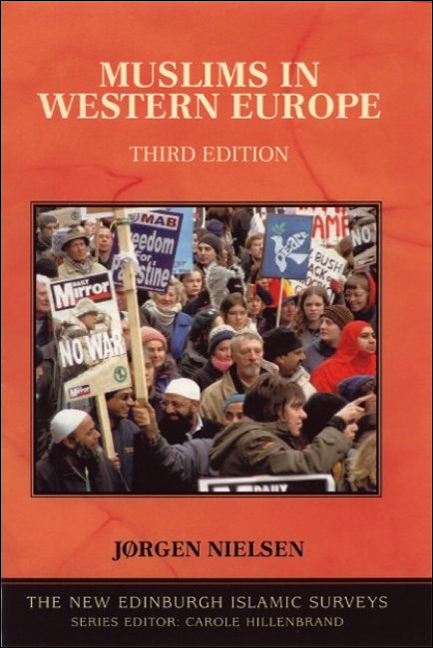10 - European Muslims in a new Europe?
Published online by Cambridge University Press: 20 December 2017
Summary
Coming into Europe, Muslims have been part of the far larger phenomenon of post-1945 labour immigration, which has led to the settlement of significant ethnic minority groups throughout the region. As they have settled, Muslims have raised challenges to their surroundings as well as been challenged themselves. There has been a complex of adjustments, not always easy, which both sides have had to make in the details of daily life. But the increasingly permanent Muslim presence and Muslims’ interaction with their surroundings are raising deeper questions and challenges to both sides, issues which relate to individual and collective senses of identity and which therefore affect and will continue to affect basic patterns of corporate and public life in western Europe.
It became common during the 1980s, especially in educational and religious circles, to talk of a Europe which was becoming ‘multicultural’. As a description of the situation in some city districts, the term had some justification, but behind it lay, on the one hand, an optimism as regards the degree of change which had been achieved and, on the other hand, the affirmation of a common European myth of a pre-existent monocultural society.
Historically, of course, Europe had for centuries been multicultural. What commonly goes under the simplistic heading of European – or even Western – culture is a product of Hellenistic, Roman, Middle Eastern and Germanic inter-mixing with previous cultures. No modern European nation can claim to be other than the product of cultural and human intermarriage. Britain had its Celtic, Norse, Saxon and Norman immigrations further enriched by more recent Dutch, Huguenot, Jewish, Italian, Polish and Ukrainian influxes. All other European countries can draw up similar lists – even before the list is expanded to include the Caribbean, Arab, Turkish, Pakistani, Indian, Vietnamese or other migrations which are the direct background to the new presence of Muslims in Europe.
Advocates of a multicultural Europe often appeal to such histories in support of their case. Such appeals can obviously be useful as an educational tool, but their usefulness as a description of realities is doubtful – and it is realities which must be dealt with before dealing positively with futures. These realities can be briefly summed up under three headings: the liberal myth of a multicultural Europe; the social reality of a multicultural Europe; and the unreality of cultural encountein Europe.
- Type
- Chapter
- Information
- Muslims in Western Europe , pp. 169 - 193Publisher: Edinburgh University PressPrint publication year: 2015



